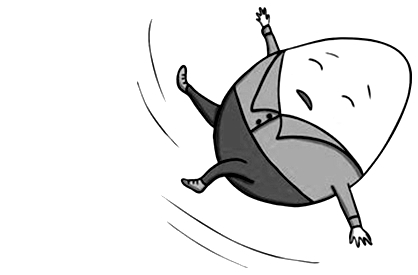
Hong Kong Secretary for Justice [sic] Paul Lam Ting-kwok says that the new national security legislation being about to be sprung on Hong Kongers as a companion to the National Security Act that China sprung on Hong Kong in 2020 is “defensive rather than offensive.”
Moreover, the new law will not undermine freedom of speech, he assures everybody.
“We want to protect ourselves. We are not attacking others,” the offensive Lam lamely insists. “I always feel we need to characterize the entire national security legal regime as being defensive, rather than offensive. It’s a protective law, not aggressive.”
Since dictators protect themselves by going on the offensive, the implication that the alternative is mutually exclusive is false.
Like the 2020 National Security Act that rapidly wiped out most of what had yet remained, post-handover, of the city’s political freedom and democracy, the new law is both defensive and offensive, both self-protective and other-destructive.
Examples of “sedition” being prosecuted under already existing law, reports the South China Morning Post, include the making of “very extreme speeches” advocating Hong Kong independence or undermining constitutional order. Being prosecuted and convicted for such verbal extremism has nothing to do with curbing freedom of speech or thinking, illumines Lam.
“We surely welcome free speech on different aspects,” he says. “Expression of feelings is common in Hong Kong and everyone does it. It is not a target of our [proposed] law.”
Whew. What a relief. The government of Hong Kong does not and will not outlaw the using of words.
And Lam is right. Hong Kongers can indeed talk about and express their feelings about scads of things without getting into trouble with the authorities. The weather. Plate tectonics. Back trouble. Needlepoint. The list goes on. The number of different aspects of whatever on which the Hong Kong government surely welcomes free speech and free expression of feelings is infinite. As Lam observes, everybody does it. Go ahead and expatiate about ponds and backgammon, and express your deepest feelings about them. If you really enjoy backgammon, let it out. Lam won’t mind. The Hong Kong government is willing to let you talk about anything that it is willing to let you talk about, anything at all.
In addition to Xi Jinping Thought, one of the top scriptures used to train CCP satraps like this Paul Lam Ting-kwok personage is Lewis Carroll’s Through the Looking Glass and What Alice Found There. In the struggle sessions, particular attention is paid to the wisdom of Humpty Dumpty. For it was Mr. Dumpty who so eloquently espoused the precept that when he uses a word, “it means just what I choose it to mean—neither more nor less.” So if you are confused, if you somehow disbelieve that censorship and autocracy are the same as freedom of speech and “not attacking others,” talk to Dumpty. He’ll set you straight.
Under Hong Kong’s new National Security Law in process of being enacted, one of the actions that is supposedly only now to be regarded as a punishable offense is “the intention to induce hatred or enmity” among Hong Kongers or others in China, perhaps hatred of Hong Kong’s curdled constitutional order. A former president of Hong Kong’s legislative council, Jasper Tsang Yok-sing, objects to the provision because it is ambiguous and has nothing to do with national security.
But this disagreement doesn’t matter, at least not insofar as it pertains to the power of the Chinese government to destroy people. The Chinese government already, whenever it likes, throws people into prison for months or years on such encompassing grounds as “stirring up trouble.” Any authorized Chinese Communist Party official can right now incarcerate Hong Kongers for “stirring up trouble” by trying to “induce hatred or enmity.”
None of the news reports suggest that the new law will give the Hong Kong division of the Chinese government any power to clobber people that it does not already exercise routinely. What it may do is make Hong Kong officials even more brazen and obnoxious, if possible.





